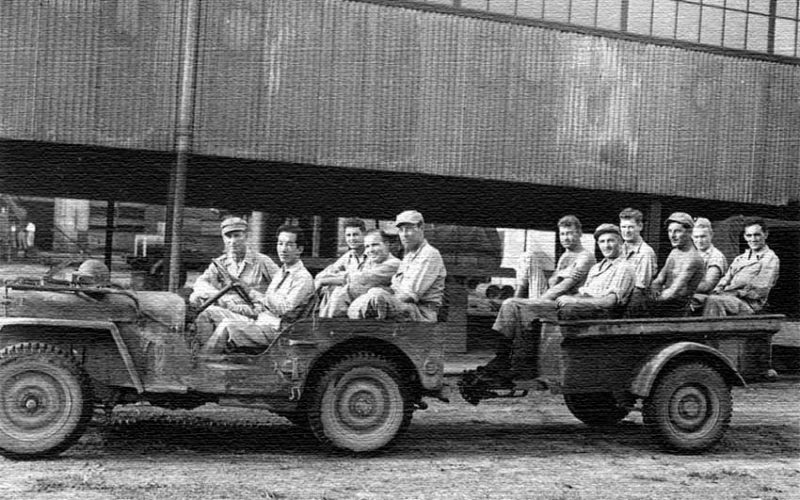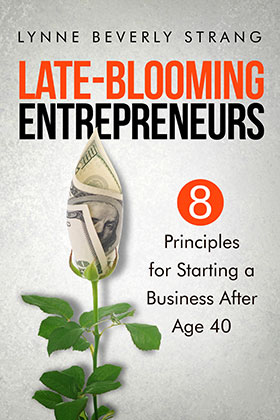{I’m honored to feature a guest post by Lynne Strang this July 4th weekend, a great time to collect family stories! ~Debra}
I had never heard of a “personal historian” until nearly three years ago.
That’s when I came across a 2010 Wall Street Journal story mentioning Jennifer Campbell, who launched Heritage Memoirs, a personal history business in Uxbridge, Ontario, at age 54.
The article led to an interview with Jennifer for my book, Late-Blooming Entrepreneurs: Eight Principles for Starting a Business After Age 40.
It also provided a first glimpse at personal history, a fascinating world.
While people of all ages become personal historians, many are in the second halves of their lives. As their awareness of time’s fleeting nature increases, so does an interest in capturing and preserving life memories.
Personal history often gets confused with genealogy, a related but distinct field. Whereas genealogists use public and private records to trace ancestry, personal historians use oral history techniques to help clients tell their life stories so they can be passed along to the next generation.
In a typical project, a personal historian records interviews with a person about his or her life – then develops the stories gathered into a narrative in audio, video or book form. Family members and/or friends may be interviewed as well.
So what comes out of these conversations? Details about weddings and birthplaces. Memories from childhood and funny stories about first dates. Vivid descriptions of aunts, uncles and distant cousins. You never know what will surface, which personal historians say is half the fun.
The final product can be a bound book, complete with family photos, to give to children and grandchildren. But it also can be a DVD, documentary, audio recording, website, scrapbook or even a quilt, among other formats.
Here are four people who are enjoying their next act as a personal historian.
Sarah White: First Person Productions
The Association of Personal Historians (APH) is a nonprofit trade association that describes its nearly 700 members as “the life story people.”
Its current president is Sarah White, owner of First Person Productions in Madison, Wisconsin.
Sarah, who founded her personal history business eight years ago at age 50, believes her later start offers certain advantages. Life experience, she said, gives her “the authenticity to be who I am, not matter who I’m talking to.”
Like many in her field, Sarah has a varied professional background that includes writing and marketing. She is the author of several books and owned an advertising agency earlier in her career.
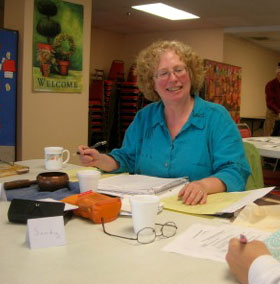 “I enjoyed entrepreneurship but was dissatisfied because it was so mercenary,” said Sarah. “I was looking for something that was more about the heart.”
“I enjoyed entrepreneurship but was dissatisfied because it was so mercenary,” said Sarah. “I was looking for something that was more about the heart.”
At one point, she considered starting a decluttering service and worked with a husband and wife who owned a business in this field. The couple introduced her to a customer who happened to be a personal historian.
“A light bulb went on,” said Sarah. For her, personal history offered “the perfect mix” of what she knew how to do, yet also was something new.
Since starting First Person Productions in 2006, Sarah has developed a niche in memoir coaching. Among her clients is a woman whose husband was paralyzed by a stroke when their children were toddlers. Her poignant memoir about the challenges faced by caretakers is finding an audience with senior center book clubs.
Sarah counts the grace and wisdom of her clients among the positives of being a personal historian. “You are going to meet some amazing people who will inspire you,” she said.
Bruce Summers: Summoose Tales
As a history major in college, Bruce Summers thought about starting an oral history business after graduation. But the timing wasn’t right back then.
Instead, he wrote for a newspaper and later served as a U.S. Peace Corp volunteer in the West Indies. Over the years, he held a series of positions in fundraising and volunteer management for several major nonprofits.
Then a downsizing left him wondering what to do next.
Two years ago, his dream from college became a reality when he launched Summoose Tales at age 53.
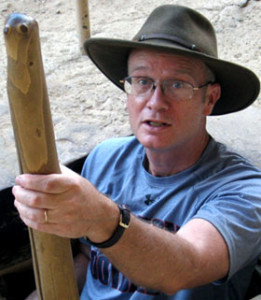 His Annandale, Virginia-based personal history business “blends many aspects of my past career,” he said. He is an active member of APH (along with the other personal historians interviewed for this story).
His Annandale, Virginia-based personal history business “blends many aspects of my past career,” he said. He is an active member of APH (along with the other personal historians interviewed for this story).
Bruce runs Summoose Tales in addition to a consulting practice that specializes in volunteer engagement and collaborative team building. An advantage of personal history, he said, is “the flexibility to work on as many or as few projects as you like” depending upon other responsibilities.
His first client was a friend who wanted to capture the stories of her 102-year-old father and 93-year-old mother. The project unearthed a previously unknown journal kept by the father during his high school years. That type of discovery, Bruce said, “appeals to the archivist side of me.”
For Bruce, personal history offers an opportunity to give back. “It’s somewhat therapeutic for seniors to tell their stories,” he said.
“As a third party, you can sometimes ask questions that the families can’t ask,” he observed. “But you have to build trust and a special bond. For me, that’s very satisfying.”
Tom Gilbert: Your Life Is Your Story
After a 30-year career in radio broadcasting, Tom Gilbert began to work in the personal history field in 2003. The Albuquerque, New Mexico resident, then 47 years old, stumbled upon the field while searching for ways to use his writing skills.
Today, Tom operates Your Life Is Your Story as a part-time business. He also teaches fifth grade, a career switch made in 2010.
He sees personal history as “more of a second half of life thing” in part because most people don’t think about their memoirs until later. “Reflecting upon my own life experiences makes me simpatico with those I work with,” he said.
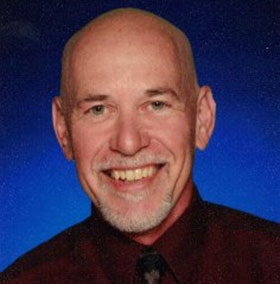 With age comes “experience, a broad perspective on life and an appreciation for other people’s point of view,” said Tom, adding that older personal historians apply “a disciplined approach based upon work skills cultivated over time.”
With age comes “experience, a broad perspective on life and an appreciation for other people’s point of view,” said Tom, adding that older personal historians apply “a disciplined approach based upon work skills cultivated over time.”
One of Tom’s more memorable projects was an across-the-world collaboration with an American contractor in Iraq who produced a Valentine’s Day book for his wife about their life together.
His current clients include a barber who spent 14 years in a North Carolina penitentiary and helped others turn their lives around by teaching them barbering skills.
For Tom, who describes himself as “fascinated by people,” personal history’s appeal comes from storytelling.
“It’s always interesting because people’s stories are so varied,” he said.
Lin Joyce: Reel Tributes
Often, personal historians get their start from a project involving one of their own relatives.
That’s what happened to Lin Joyce, who began in 1997 by interviewing her 95-year-old grandmother.
“She was an important person in my life,” said Lin, who was 45 at the time. “I just thought: If don’t record this now, I may not be able to.”
So Lin, who now lives in Herndon, Virginia, traveled repeatedly to her home state of California, where her grandmother lived. She managed to get 15 hours of her grandmother’s story on tape.
Since then, she’s conducted some 500 interviews (and counting) throughout her career.
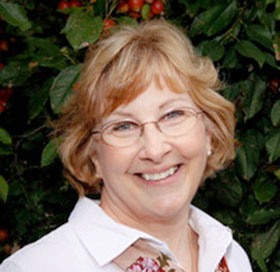 As the founder of a personal history program for a hospice in the Washington, D.C. area, she trained volunteers to interview patients who wanted to tell their stories.
As the founder of a personal history program for a hospice in the Washington, D.C. area, she trained volunteers to interview patients who wanted to tell their stories.
Today, she is the head interviewer for Reel Tributes, a personal history film producer headquartered in D.C. In addition, she is certified in ethical will preparation and leads workshops on this topic.
One of her favorite interview moments occurred while talking with her grandmother, who revealed that she once lent a golf skirt to Bob Hope’s wife, Dolores, at a 1950s golf tournament. When a rainstorm drenched Dolores Hope, it was Lin’s grandmother who came to the rescue with a dry skirt of her own.
Lin, who is married to a retired foreign-service officer, was too busy moving (18 times in 21 years) and raising two daughters to be interested in personal history earlier in her life. Now that she’s lived a bit, the 62-year-old sees it as very important.
“In an interview,” she said, “there’s a dynamic that happens when a stranger sits down, knee to knee, and says ‘tell me about your life.'”
“I feel very purposeful in what I do,” she added.
Would you like to be a personal historian? Here are some tips:
1. Prepare your own story. It will show you what the work and time commitment are like—plus create a sample project for your portfolio.
2. Evaluate your strengths. Think about whether you’re detail oriented, organized, patient and empathetic—traits found among successful personal historians.
3. Do your homework. Start with APH’s website and Jennifer Campbell’s Start & Run a Personal History Business.
4. Write a business plan. The critical thinking required will help you identify, and avoid, potential problems
5. Connect with other personal historians. APH offers many networking opportunities, including its annual conference.
6. Look at other personal historians’ work. You’ll gain an understanding of the types of projects out there
7. Start slowly. Understand that it will take time to build an income
8. Check out what’s online. Among the more notable sites: Cowbird.com, ImaStory.com and StoryCorps.com.
9. Find a niche. Areas of focus include coaching, book production and video, among many others. Figure out what you’re good at and carve out a specialty.
10. Get ready for an intensive process. Personal historians often spend hours just preparing for an interview.
Lynne Strang is, herself, a late bloomer. In 2010, she retired from her “real job” in public relations to become a writer and communications consultant.
Her book, Late-Blooming Entrepreneurs: Eight Principles for Starting a Business After Age 40, is available on Amazon and other book websites. Her home on the Internet is Late-Blooming Entrepreneurs.
(Post image: My dad’s photo corp. I have his pictures, but not his story. You can see them at PacificWarPhotos.com.)
